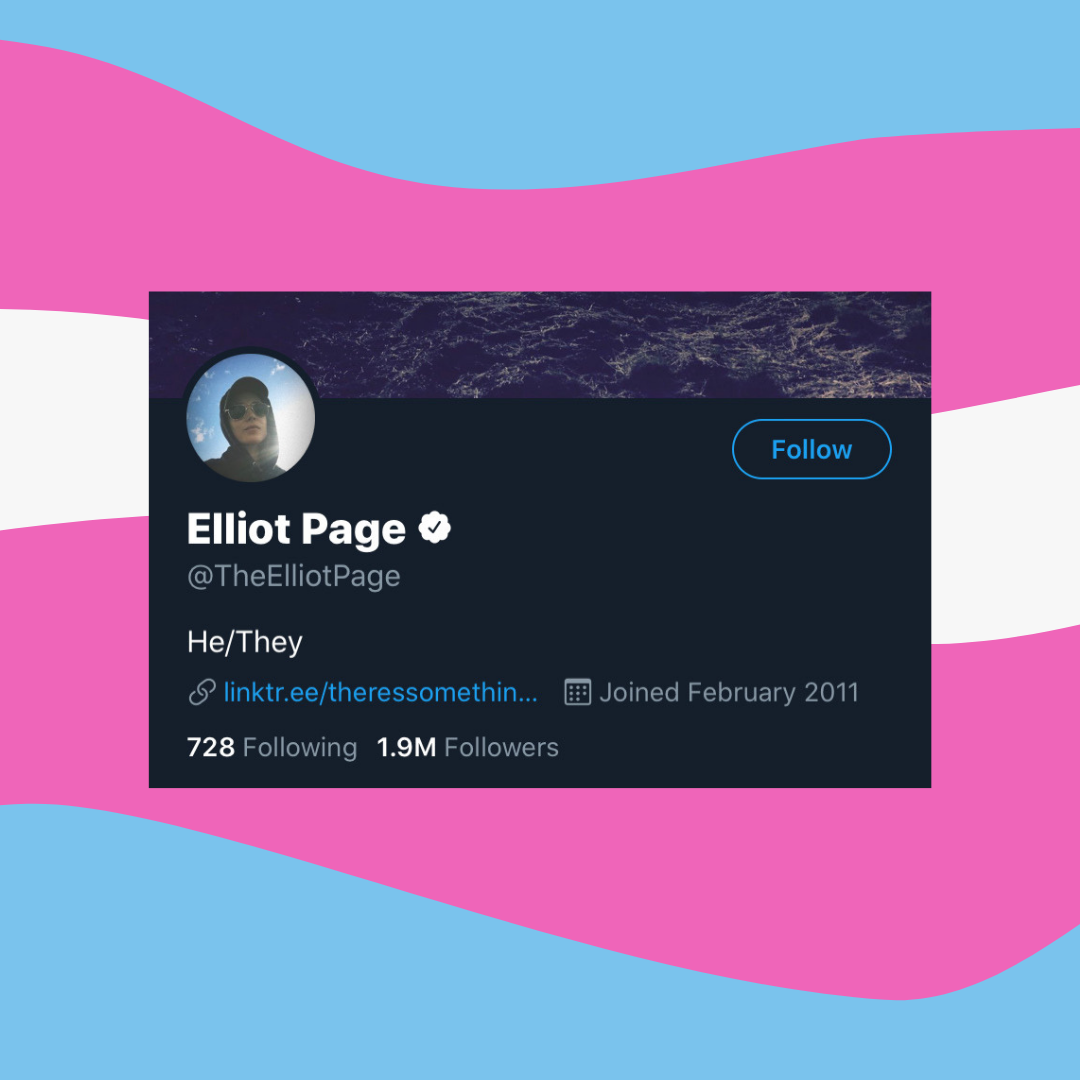Elliot Page, the actor famous for roles in “Juno” and “The Umbrella Academy,” has recently posted a letter on social media explaining to fans that they are transgender.
Page, whose deadname (the name given at birth) was Ellen, put the letter on Twitter this past December. In it, Page announced that he identifies as transgender and that their preferred pronouns are he(masculine)/they(gender-neutral).
Being transgender means identifying with the opposite gender to the one based on your original biology, or assigned gender at birth (AGAB), usually categorized into assigned female (AFAB) or male (AMAB) at birth.
While most transgender people fall under the nonbinary umbrella, or greater community of those who do not identify with their AGAB, the trans community has a life of its own.
While some trans people know their identity from the start, many do not come to understand it until various stages in their life, often when they were raised in a conservative or religious family or community. From whatever point they come to terms with their identity, a trans person is faced with the decision of if or when to share that with those around them.
There are many types or levels of transitioning, and transgender people can choose for themselves based on safety, physical and financial ability and psychological needs to determine what they need to do to bring their mind and body to harmony.
Social transitioning refers to wearing clothes that conform to a trans person’s identified gender and usually requesting others around them to use their preferred name and pronouns. Some people may choose to use special clothing to help them socially transition, such as chest binders for AFAB people or gaffs for AMAB people.
Medical, or hormonal transitioning, refers to using hormone replacement therapy (HRT), which is usually prescribed by a doctor, to gradually change hormonal levels to be similar to those of someone of their true gender. Frequently the hormonal changes themselves can be euphoric, and additionally, the gradual body changes can also help relieve dysphoria.
Trans AMAB people will usually be prescribed a combination of estrogen and a testosterone blocker, and the process is often similar to hormonal therapy that cisgender women may undergo
during menopause. AFAB people will usually only need testosterone to transition hormonally, as the testosterone naturally starts to lower their body’s estrogen levels.
Transitioning, whether socially or medically, is an emotional and often difficult experience for the person undergoing the transition. Many transgender people encounter transphobia (discrimination against those who identify as something other than their AGAB) during this time. Because of this, transgender and nonbinary people may be exposed to unnecessary violence.
According to the 2015 Transgender Survey, approximately 45% of the transgender population in America has been a target of sexual assault. Of the transgender individuals who responded, the vast majority of survivors had been people of color. 17% of the transgender individuals who had been assaulted had been living in poverty or were homeless.
Suicide rates within the LGBTQ+ community are higher than heterosexual/cisgender individuals due to the lack of support many face. Open discrimination may also be a cause, as many feel unsafe or targeted for embracing an identity with which they were born.
According to the American Academy of Pediatrics, many transgender teens had attempted or contemplated suicide for various reasons. Roughly half of young transgender men had admitted to feeling suicidal. 29% of young transgender women had confessed to also feeling suicidal, while 42% of gender-non-conforming teenagers had also admitted to contemplating or attempting suicide. It has been noted that transgender suicide rates drop significantly after the transition process begins.
In their coming-out letter, Page refers to the crimes committed against those who do not identify as their assigned gender at birth as “insidious and cruel.” Page goes on to acknowledge that these acts of violence often have “horrendous consequences.” He urges readers of his letter to make resources available for transgender/gender-nonconforming people in order to lessen the statistics of violence and death that mar the community.
Page will still continue to act and has publicly thanked his wife and fans for their continuous support during a vulnerable time in his life.




